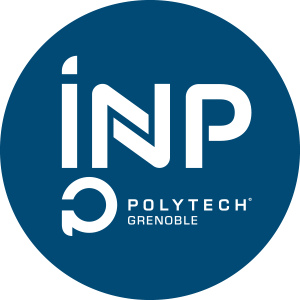Number of hours
- Lectures 10.5
- Projects -
- Tutorials 3.0
- Internship -
- Laboratory works 1.5
- Written tests -
ECTS
ECTS 0.75
Goal(s)
The project brings into play the theoretical and practical skills acquired in Year 3, and involves developing software over a 3-week period on a full-time basis in teams of 5 or 6 students.
The aim of this course is to
- reinforce acquired skills
- illustrate the concepts of project management and software engineering
- expose students who are used to structured practical work to the challenge of designing a complete software program in a freer environment
- a significant part of the project is devoted to presentations by an external consultant (E.Dufour) on team management, cooperation and conflict resolution.
Content(s)
The framework imposed is the realization of a physical simulator with multiple interacting objects. This theme covers a wide range of computer applications in various fields.
To motivate the students, the subject takes the concrete form of a game engine.
The theme of the game is left open, but the engine must respect the following constraints:
- The behavior of each active entity is defined by an automaton.
- Automata, characters and scenery are described in a file, which requires the use of a parser to import them into the engine.
- Design follows the MVC pattern (model, view, controller)
- the engine is event-driven: a single task manages interactions (keyboard, mouse), the graphical interface and physical model updates
- The scheduling of entity activation must guarantee fluid and fair simulation of active elements.
The project provides an introduction to software engineering through
- the use of a version management system ;
- the importance of software architecture;
- the role of integration tests;
- the role of interfaces in breaking down tasks;
- producing developer/user documentation;
- preparing a demo.
The project comprises 2 phases:
- 1st week: brainstorming, prototyping, project presentation, drawing up a contract.
- 2nd and 3rd weeks: development, presentation and demonstration, evaluation.
Having taken the courses of year 3 in imperative and object-oriented programming, automata and syntactic analysis is required
100% CC
The course exists in the following branches:
- Curriculum - INFO - Semester 6
Course ID : KAIN6M14
Course language(s): 
You can find this course among all other courses.
- Conception & Développement de Logiciels
- Design Patterns: Catalogue de modèles de conception réutilisables, Erich Gamma, Richard Helm, Ralph Johnson, John Vlissides - Vuibert (1999), 480 pages.
- Management & Coopération
- Structure et dynamique des organisations, Henry Mintzberg - Eyrolles (1998)
- Super-collectif : la nouvelle puissance de nos intelligences, Emile Servan-Schreiber - Fayard (2018)
- Approche systémique dans les organisations, Alex Mucchielli - Colin (2004)
- Donner et prendre, la coopération en entreprise, Norbert Alter - La Découverte (2011)
- The evolution of cooperation, Robert Axelrod, - Basic Books (2006)



